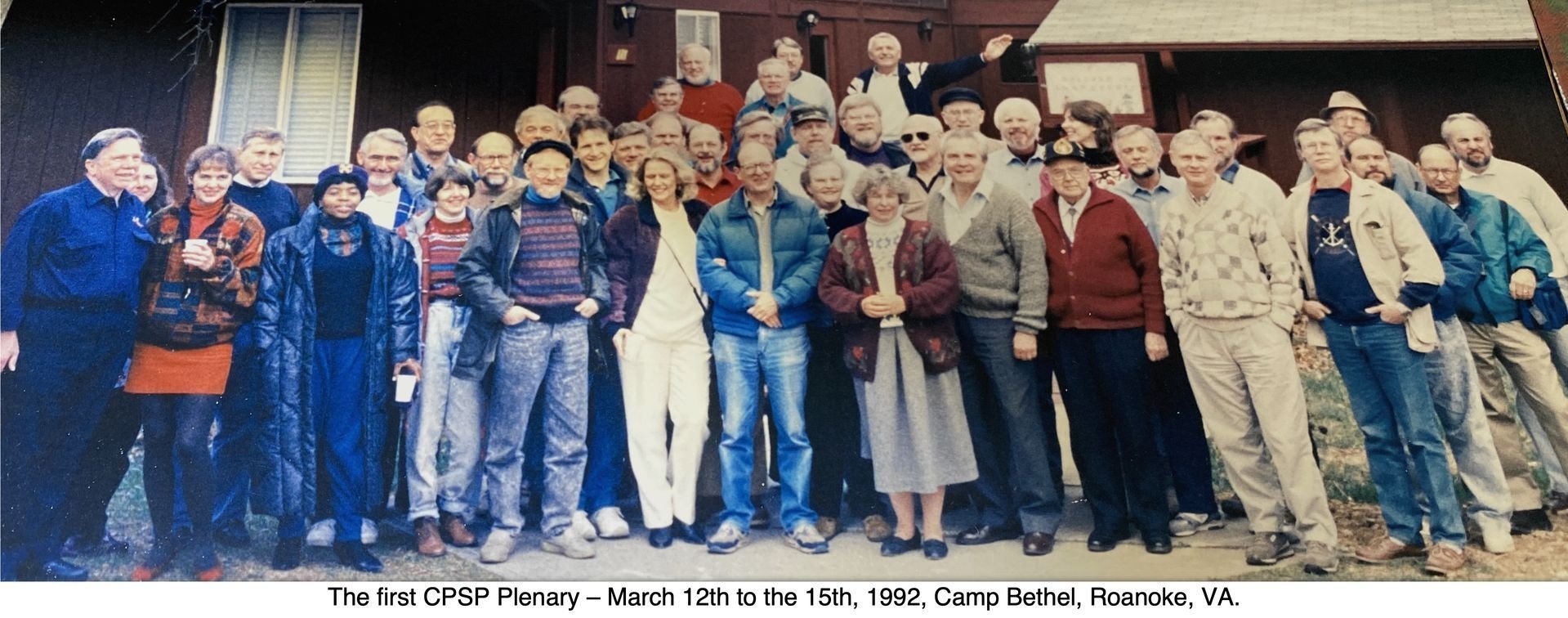
History and Purpose
The College of Pastoral Supervision and Psychotherapy (CPSP) was founded in 1990 as a credentialing community by 15 certified members of the Association for Clinical Pastoral Education (ACPE) and the American Association of Pastoral Counselors (AAPC).
The founders, led by Raymond J. Lawrence, shared a desire to reform the clinical pastoral movement and its institutions and raise the bar on the level and quality of clinical pastoral training.
From the start, CPSP’s founders made their decisions by consensus, a defining governance process still used throughout the organization today.
Those gathered at the first meeting in March 1990 agreed that CPSP would embrace a Covenant that would bond its members. Raymond Lawrence drafted the Covenant, which was accepted. While it has undergone minor revisions over three decades, it remains unchanged today.
The Covenant requires all CPSP members to be committed to active participation in a small group known as a chapter “of approximately a dozen persons.”
Within six months of CPSP’s founding, five chapters were established: in Atlanta (GA), Chapel Hill (NC), San Antonio (TX), Lexington (KY), and Washington (DC).
From the start, CPSP has been committed to being a professional volunteer organization. A decision was made to pay salaries only for administrative support performed by non-certified persons.
The distinction between supervised “clinical pastoral training” – a term intentionally chosen by Anton T. Boisen, whose own chaplaincy started the clinical pastoral movement in 1925 – and “clinical pastoral education” – ACPE’s members are called “educators” – was not a central issue when CPSP began.
Its significance quickly became clear, however, when Raymond Lawrence and others in CPSP recognized the work of psychiatrist-historian Robert Charles Powell, MD, PhD.
Although Powell had addressed the annual ACPE conference in 1975 and ACPE published a major paper by him, his work was effectively ignored in its ranks. Powell brought into clear focus Boisen’s original aims for chaplaincy as a process of “cooperative inquiry” that helps people, with the aid of a clinically, psychodynamically trained chaplain, to find meaning and purpose in the midst of their crisis, distress, loss, grief or perplexity.
Today, CPSP continues Boisen’s original vision for ministry while working at the cutting edge of behavioral and social sciences.
CPSP
College of Pastoral Supervision & Psychotherapy (CPSP) is a theologically based covenant community dedicated to the Recovery of the Soul.
We join, in an egalitarian manner, to develop, share, and promote our expertise:
The Accreditation of programs in clinical training and pastoral psychotherapy training,
The Qualification and Certification of Supervisors, and
Continuing Professional Education.
The Essence of CPSP is Relationship.
The Heart of CPSP is Competence and Caring.
The Genius of CPSP is the Chapter.
Why CPSP?
CPSP has been around for more than a quarter of a century. It started as a reform movement to raise the bar on what chaplaincy and training chaplains is all about.
CPSP is the only fully integrated professional chaplaincy organization and community in the nation (and in the world). What does that mean? CPSP isn't just a member organization or a certifying body of educators. It trains chaplains, conducts board certification, and accredits clinical pastoral education and training programs with high professional standards, all done in a uniquely accountable chapter-based model.
In CPSP, every board-certified member participates in ongoing peer review in an environment of professional peer support. There are no anonymous certified members because certification is renewed annually.
Similarly, every CPE (clinical pastoral education) program benefits from and is accountable to peers on an ongoing basis, not just at accreditation time but year in and year out.
In CPSP, it's not enough for a chaplain to be a person in ministry who's caring and compassionate and knows their way around the medical center. That's a given.
CPSP chaplains are trained to focus on clinical pastoral skills that help those facing uncertainty, loss, or grief to find meaning and purpose in their distress, and they're trained to do so with patients of any faith, including those who are spiritual but not religious – as well as those of no faith.
The Highest Standard in Clinical Chaplaincy and Clinical Pastoral Training
CPSP is the only established chapter-based pastoral care organization that provides ongoing peer review and support to chaplains throughout their career.
CPSP is the only fully integrated chaplaincy community, with membership including those in CPE training, board-certified chaplains, as well as pastoral supervisors and pastoral psychotherapists.






